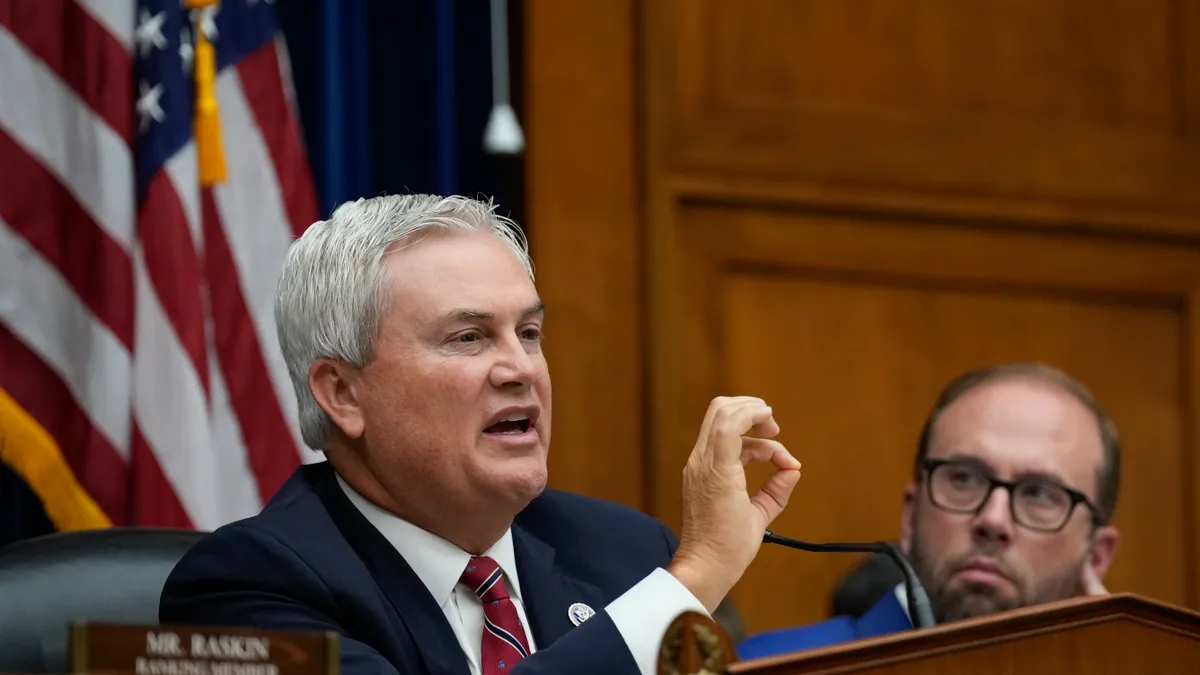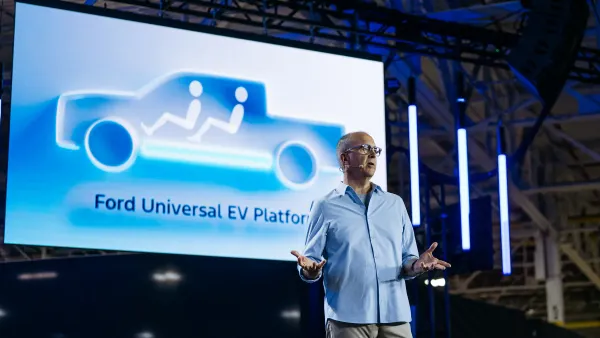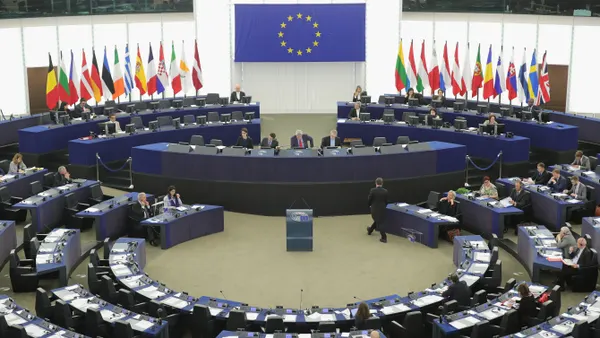Dive Brief:
- The House Oversight Committee’s majority is forging ahead with its ESG investing inquiry, this time shifting its gear toward the Internal Revenue Service, according to a letter the agency received last week.
- Committee Chair James Comer sent a letter to IRS Commissioner Daniel Werfel June 6 requesting insight into how the agency ensured state pension funds perform their fiduciary duty and do not violate provisions of the U.S. tax code, which requires them to invest for the “exclusive benefit of their enrollees.”
- Comer alluded to funds that incorporate ESG factors into their frameworks and alleged that some state pension funds have made investment decisions that pivot from the “exclusive benefit” provision and are using the retirement system’s assets and shareholder voting rights to “pursue their own political agenda.”
Dive Insight:
The Kentucky lawmaker also alleged retirement plans in liberal-leaning states such as California have used ESG to “pursue anti-oil and gas policies,” potentially violating the exclusive benefit provision of the Internal Revenue Code.
In his letter, Comer referenced the California Public Employees Retirement System’s pledge to vote against all 12 members of ExxonMobil’s board of directors and CEO during the oil major’s May 29 shareholder meeting related to its ongoing lawsuit against two shareholders. Comer said CalPERS’ decision showcased how retirement plan administrators in Democrat-led states have “become aggressive in using the voting rights associated with their participant retirement assets” to promote policies that boycott fossil fuels.
“It is clear that this vote, designed to pressure the company to stand down from action taken to lower costs and protect shareholder value, meets the exclusive benefit test,” Comer wrote.
Comer also criticized Arjuna Capital and Follow This, the activist investors that asked Exxon to ramp up its scope 1 and scope 2 greenhouse gas emission reduction efforts and set scope 3 targets similar to its peers in the oil and gas industry. The investors withdrew the proposal shortly after the oil company initiated legal action.
The Republican lawmaker said Arjuna continues to hold the minimum investment needed to “repeatedly offer nuisance shareholder proposals seeking to harm [Exxon].” The investment firm has stated goals to “divest from fossil fuels” and “shrink” oil companies — not maximize the oil company’s value, according to Comer.
The committee chair asked the IRS to detail how it determines state pension plans comply with the exclusive benefit requirements listed under Title 26, Internal Revenue Code 401, which has guidelines for qualified pension, profit-sharing and stock bonus plans. Comer also requested copies of any guidance the IRS has issued to ensure the exclusive benefit provision is met by state pensions and sponsors, as well as any action the agency has taken against plan sponsors who may have failed to meet the provision during the fiscal years 2018-2024.
The IRS has until June 20 to respond to the House Oversight Committee, per Comer’s letter.










